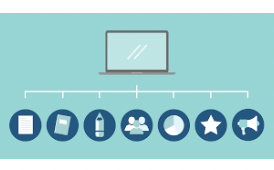Law Fuel report
Declan Peters* Artificial intelligence (AI) technology is increasingly present in the legal profession. Declan Peters and the Lawyer Portal look at how law firm management can effectively harness its potential and manage risk.
The rise of AI within the public consciousness has been nothing short of astronomical.
While mass market products such as ChatGPT are increasingly popular, professional service industries are also finding ways to engage with AI to optimise their businesses.
Law firms are no exception.
Outsiders have traditionally perceived law firms as maintaining a rather stuffy, conservative approach to running their businesses (see, for example, the billable hour).
However, many firms have been increasingly interested in legal technology for some time now. In more recent years, interest has skyrocketed.
Over half of lawyers now use some form of AI according to University of Oxford research by John Armour and Mari Sako.
Here, we set out 10 considerations to think about when engaging with AI – from plentiful potential uses to serious potential risks.
1. Training staff on AI technology
Discussing AI usage is one thing – getting training in place to make it feasible is quite another.
The Law Society’s horizon scanning report on AI and the legal profession asks: “Are managers receiving relevant training to prepare for intelligent machines?”
Staff need to know how to use AI tools, but they also need to understand why to use them.
Demonstrate, with tangible examples, how AI tools will cut workloads, or simplify tedious processes.
Crucially, the training process needs to start at the top level – getting senior staff on board rather than expecting a bottom-up approach.
2. The impact on human lawyers
Lawyers need a wide range of skills for day-to-day work – from attention to detail and a dedicated work ethic to interpersonal skills.
The introduction of AI models is changing the skills required. Naturally, this includes basic technological skills (although AI systems should be as user-friendly as possible).
You also need to consider how your employee skills overlap with the abilities of AI models.
The horizon scanning report describes how AI systems are best used to “augment human judgement” rather than replace it entirely.
Routine basic tasks can be the best place to employ AI models, since more complex tasks (requiring a personal understanding of the client’s motivations) are still far better suited to human judgement.
Other horizon scanning reports have suggested:
- menial tasks becoming automated could form part of the World Economic Forum’s prediction of 5 million jobs being lost to computers in the next five years
- the increasing need for lawyers to develop flexible ‘T-shaped’ skills, providing depth of knowledge and the adaptability to collaborate with other specialists
Read more
Law Technology and 10 Ways AI Is Changing Law Firm Management




